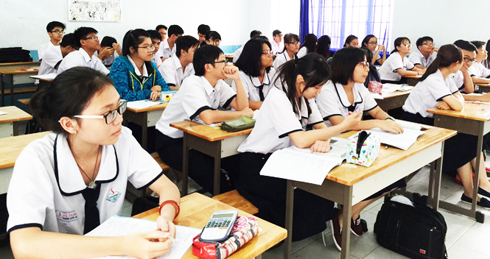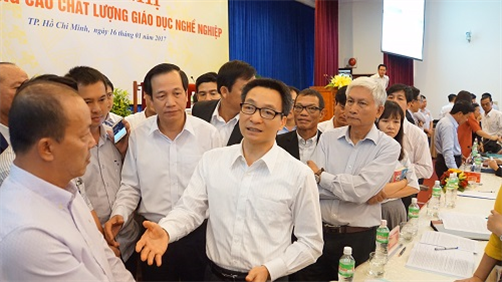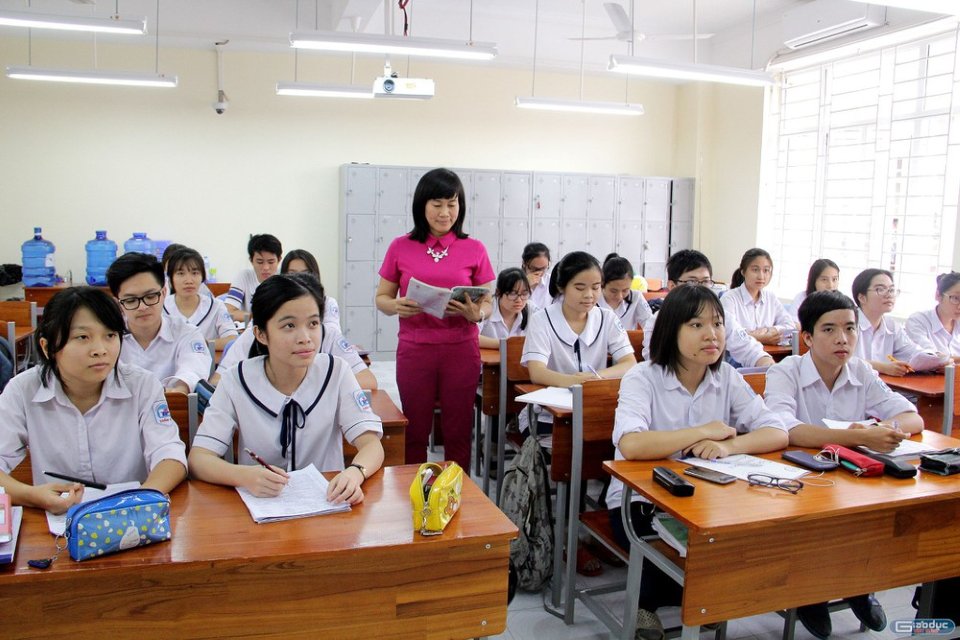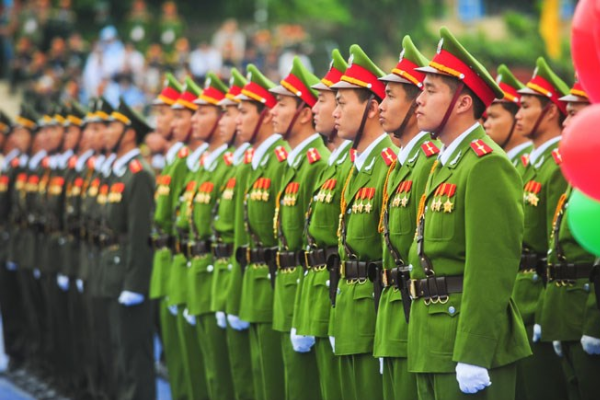What code of conduct do students, teachers, and employees at educational institutions need to follow? - Ha Trang (Cao Bang,Vietnam)
The code of conduct in educational institution is based on the provisions of Circular 06/2019/TT-BGDDT, specifically as follows:
1. General code of conduct in Vietnam
- Strictly comply with the provisions of law on rights and obligations of citizens, civil servants, officials, teachers, workers and learners.
- Perform a healthy and positive lifestyle, care, share and help others.
- Protect and preserve the educational institution's landscape; building a safe, friendly, green, clean and beautiful educational environment.
- Administrative officers, teachers must use polite outfit, suitable for environmental and educational activities; employees must use clothing suitable for the educational environment and the nature of the work; learners must use clean and neat clothes suitable for ages and educational activities; learners' parents and visitors who come to school must wear clothing appropriate to the educational environment.
- Do not use clothing that is offensive.
- Do not smoke, use alcohol, substances banned in educational institutions as prescribed by law; do not engage in social evils.
- Do not use social networks to disseminate, propagate and comment on information or images contrary to the customs and habits, contrary to the Party's guidelines, policies and laws of the State or adversely affect the educational environment.
- Do not cheat, lie, slander, stir up hatred, harass, coerce, intimidate, or inflict violence against others.
- Do not harm the health, honor and dignity of oneself, others and the collective reputation.
2. Code of conduct for educational administrative officers in Vietnam
- Behavior with learners: Use standard and easily understandable language; express love, conscientiousness, magnanimity; respect differences, give fair treatment, listen to and encourage learners. No offense, coercion, repression, violence.
- Behavior with teachers, staff: Use standard language, express respect and encouragement; stay earnest, exemplary and become companion in work; protect reputation, honor, dignity and promote the capacity of teachers and staff; show solidarity, democracy, fairness and impartiality. Do not be arrogant, cause difficulties, insult, prejudice, bias, self-seeking, avoid responsibility or hide violations, blame.
- Behavior with learners’ parents: Use standard language, express respect, support, cooperation, sharing and friendliness. Do not offend, cause difficulties, troubles, and self-seeking.
- Behavior with visitors to educational institutions: Use standard, respectful, courtesy and proper language. Do not offend, cause difficulties and troubles.
3. Code of conduct for teachers in Vietnam
- Behavior with learners: Use standard and easily understandable language, give praise or criticisms to proper entities and in appropriate situations; stay exemplary, magnanimous, responsible, loving; respect differences, give fair treatment, counsel, listen to and encourage learners; actively prevent and combat school violence, build safe, healthy, friendly educational environment. Do not offend, hurt, self-seeking; do not repress, prejudice, inflict violence, abuse; do not ignore, avoid or hide learners' violations.
- Behavior with administrative officers: Use language which is respectful, honest, enquiring, positive and shows clear opinions; obey the direction, administration and assignment of leaders as prescribed. Do not offend, cause disunity; do not ignore, evade or conceal the misconduct of administrative officers.
- Behavior with colleagues and staff: Use language which is proper, honest, friendly, enquiring, and supportive; respect the difference; protect reputation, honor and dignity of colleagues and staff. Do not offend, show soullessness, cause disunity.
- Behavior with learners’ parents: Use language which is proper, honest, respectful, friendly, and cooperative. Do not offend, place pressure, self-seeking.
- Behavior with visitors to educational institutions: Use proper and respectful language. Do not offend, cause difficulties and troubles.
4. Code of conduct for staff in Vietnam
- Behavior with learners: Use language which is standard, respectful, responsible, magnanimous, supportive. Do not cause difficulties, troublesome, do not offend or inflict violence.
- Behavior with administrative officers, teachers: Use language which is property, honest, respectful and cooperative; abide by the assigned tasks. Do not shirk responsibilities, insult, cause disunity, and self-seeking.
- Behavior with colleagues: Use language which is proper, cooperative, and friendly. Do not offend, cause disunity, or shirk responsibilities.
- Behavior with learners’ parents and visitors to education institutions: Use proper and respectful language. Do not offend, cause difficulties and troubles.
5. Code of conduct for learners in general education institutions and continuing education institutions in Vietnam
- Behavior with administrative officers, teachers and staff: Show respect, politeness, honesty, sharing, and observe the requirements as prescribed. Do no fabricate information; do not offend spirit, honor, dignity, or inflict violence.
- Behavior with other learners: Use language which is proper, friendly, honest, cooperative, helpful and respect differences. Do not use bad language, swear, insult, cause disunity; do not fabricate; do not spread information to slander, affect honor and dignity of other learners.
- Behavior with parents and relatives: Show respect, politeness, honesty, and love.
- Behavior with visitors to educational institutions: Show respect, politeness
6. Code of conduct for learners' parents in Vietnam
- Behavior with learners: Use language which is proper, respect, sharing, encouragement, friendliness, and love. No offense, violence.
- Behavior with administrative officers, teachers and staff: Show respect, responsibility, cooperation and sharing. No fabrication of information; do not offend spirit, honor, dignity.
7. Code of conduct for visitors to educational establishments in Vietnam
- Behavior with learners: Use proper, respectful and friendly language. No offense, violence.
- Behavior with administrative officers, teachers and staff: Right and respectful. No fabrication of information. Do not offend spirit, honor, and dignity.
Nhu Mai
 Article table of contents
Article table of contents










.Medium.png)
.Medium.png)
.Medium.png)
.Medium.png)
